-
KEY POLICIES
The Fiji 2020 Agriculture Sector Policy Agenda complements the National Green Growth Framework, providing an inclusive development framework for the national agriculture economy to move forward and address emerging domestic and global challenges. The Policy include five strategic actions towards establishing a diversified and economically and environmentally sustainable agriculture economy in Fiji
This development plan is a direct response to Government’s concerns on the rising import bills on food and diminishing exports. The plans specifically identifies commodities for import substitution over the three year period, and maps out a strategy for the department to achieve its objectives
-
LEGISLATION AND REGULATIONS
Under Development
-
Statistics
The In-Depth Country Assessment Report (IdCA 2015) for Agriculture and Rural Statistics provides a benchmark to assist Fiji to improve and develop the quality of Agricultural and Rural Statistics used in decision making. It describes the existing agricultural statistics system, identifies data gaps and weaknesses, and identifies the minimum set of core data. The report also assesses the country’s statistical system and identifies the technical assistance and training interventions needed for improvement
This is the fourth agricultural census for Fiji, conducted after a lapse of 18 years. It is the first census to be conducted in the country using Multiple Sample Frame (MSF) methodology, and provides a platform for more diversification and improvement programmes within the agriculture sector, ensuring compatible foreign exchange earnings as well as uplifting the living standards of the rural populace.
-
USEFUL RESOURCES
The Green Growth Framework is an innovative tool designed to accelerate integrated and inclusive sustainable development that inspires action at all levels in the country to build environmental resilience, build social improvement and reduce poverty, build economic growth, and build resilience to the anticipated adverse effects of climate change.
The Roadmap for Democracy and Sustainable Socio-economic Development (RDSSED) 2010-2014 sets out a strategic framework to achieve sustainable democracy, good and just governance, socio-economic development and national unity towards ‘A Better Fiji for All’. The RDSSED provided guidance for the Green Growth Framework and the Fiji 2020 Agriculture Sector Policy Agenda.
-
PARTNERS / DONOR ACTIVITIES
‘A matrix outlining ongoing and upcoming donor/development partner activities in the agriculture sector in Fiji’
-
KEY POLICIES
Fiji Agritourism Outcomes Report 2018
Following the request of the Fiji’s Ministry of Agriculture (MOA) to the Technical Centre for Agriculture and Rural Cooperation (CTA), together with the support of the Pacific Community (SPC), Pacific Islands Private Sector Organistion (PIPSO), South Pacific Tourism Organisation (SPTO) and International Fund for Agriculture Development (IFAD), organised two workshops on “Agritourism Policy Setting Policy” which was held on 23rd and 26th February 2018 at the Novotel Hotels in Nadi and Suva. The two days’ workshops was funded by the European Union IntraACP Agriculture Policy Program which is implemented by the Pacific Community (SPC). The two days’ workshop was organised with the objectives (i) to promote linkages between the agrifood and the tourism industry to increase sustainable local sourcing through agritourism policy Fiji, (ii) to increase the understanding and awareness of the current deficiencies in the supply of produce along the value chain and to identify the actions needed, including specific projects to upscale; (iii) to design inter-sectoral and inclusive policies which promotes PPPs.
Fiji Agritourism Framework 2018 - presentation
This presentation talks about the Fiji Agritourism Framework.
-
LEGISLATION AND REGULATIONS
Crop Industry Plans are currently under development
-
USEFUL RESOURCES
Crop Industry Plans are currently under development
-
KEY POLICIES
Kava is an integral part of life in Fiji.The manual is a guide for all involved in the production of kava. It is a tool we can use to gauge our progress at improving the quality of the kava. It is also an indication that we are developing in our approach towards global food safety standards and regulations.
To address Fiji's livestock development challenges in a coherent, strategic and sustainable way, a thorough elucidation of the ‘way forward’ is presented here, made up of a series of policy directives, implementation strategies and evaluation mechanisms
This standard applies to kava (yaqona) as defined below. The standard applies to kava products used as a food or food ingredient and/or other products intended for human usage. The word “kava” refers to the plant species Piper methysticum and/or to the traditional beverage obtained by cold water extraction of the plant’s drinkable parts.The word “kava” also refers to the Piper methysticum varieties known to have a history of safe traditional usage.
In May 2015 a Fiji Livestock Sector Forum, themed ‘Livestock for Livelihoods – New Generation Thinking’ the first in over 5 years, was held at the Tanoa International Hotel, Nadi. Participants were drawn from the private and public sectors, livestock farming enterprises, and industry associations. The meeting shared experiences on the challenges for development, where possible solutions and opportunities were discussed and recorded in a matrix of outcomes for the Livestock sector in Fiji. The next step was to formulate a draft livestock sector strategy for Fiji
The Fiji Livestock Sector Strategy was developed in strong consultation with sector stakeholders with oversight from the Fiji Sector Strategy Working Group. It is intended to guide the detailed planning and implementation of activities to achieve the goals of the livestock sector stakeholders - Improved governance; Competitive value chains; Sustainability and resilience; and New generation opportunities.
-
LEGISLATION AND REGULATIONS
Under Development
-
USEFUL RESOURCES
Under Development
-
This section includes documents from the Divisions of Economic Planning & Statistics, Research, Land Resource Planning & Development, and Land & Water Resource Management
In Fiji there is a need to ensure that development is sustainable in a true spirit of constructive co-operation between all appropriate sectors. This Policy reflects the commitment of Government to find sustainable mechanisms of development that will create the necessary preconditions to achieve environmentally sound, socially desirable and economically appropriate forms of land use.
Land Use Capability Classification is a systematic arrangement of different kinds of land according to properties that determine its capacity for sustained production. It incorporates information on Geology, Soils, Relief, Erosion, Vegetation, Land Use, and Climate. This guideline is designed to assist land users in making informed decision on farm planning and includes recommended land use and conservation measures based on land use capability classes.
-
LEGISLATION AND REGULATIONS
Under Development
-
USEFUL RESOURCES
Under Development
-
KEY POLCIES
This National Climate Change Policy provides guidelines for all sectors of Fiji’s economy to ensure that current and expected impacts of climate change are considered in their planning and implementation programmes. It also encourages relevant sectors to take up climate change mitigation initiatives as part of Fiji’s contribution to global efforts to reduce greenhouse gas emissions.
This document showcases a range of staple root crops - Taro, Cassava, Sweet Potato, Yam – and their varieties, which are capable of growing under the types of extreme conditions that are increasingly being experienced in Fiji due to the effects of climate change – prolonged dry, prolonged wet, wet and dry.
-
LEGISLATION AND REGULATIONS
Under Development
-
USEFUL RESOURCES
Under Development
-
KEY POLICIES
Download Market Access technical reports produced by PHAMA
A technical paper written in the response to the 2011 Biosecurity Australia draft review of import conditions for Fresh Taro Corms, including Phytosanitary Procedures. PHAMA’s response outlines comments for consideration prior to finalisation of this review policy including, significantly, reconsideration of risk assessments and a full and rigorous pest and disease survey of the Australian taro industry
This report was commission by the Fiji Market Access Working Group (MAWG) in 2011 to look into potential issues relating to export of fresh ginger to Australia. It recommended that the Fiji FMAWG wait until Australia has distributed the draft Import Risk Analysis for comment to invest resources into identifying where potential phytosanitary issues may arise.
Taro is Fiji’s second largest agricultural export. This report gives a brief overview of the taro export supply chain in Fiji, the import conditions for taro into Australia and New Zealand, and relevant research and development projects taking place at the time of the study (2011).




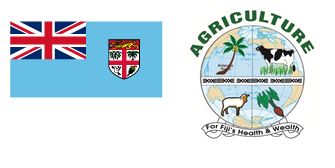
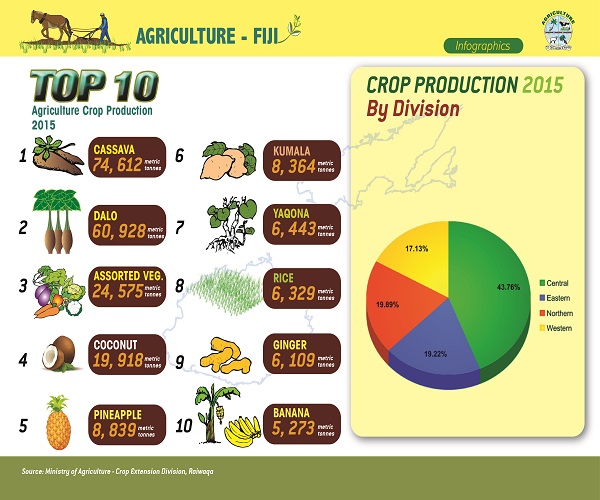
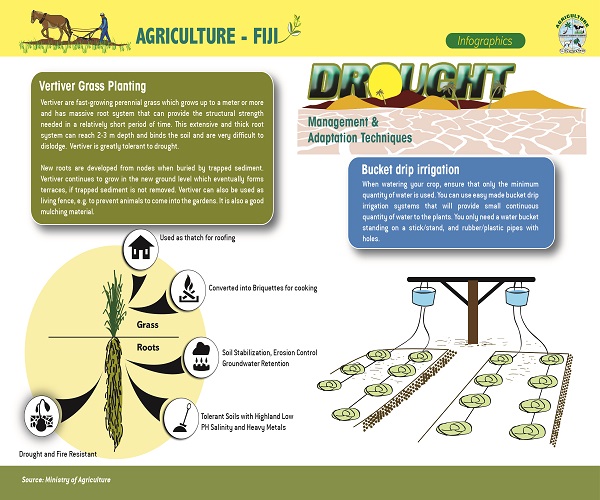
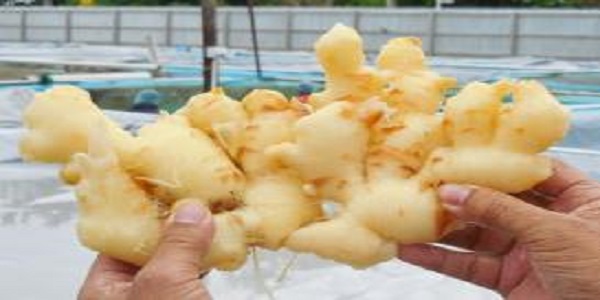
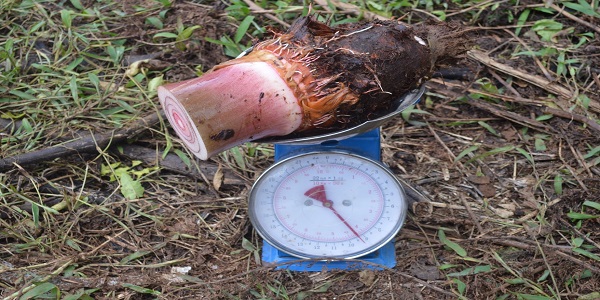
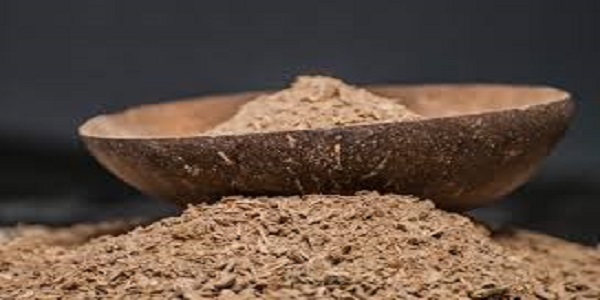
















CONNECT WITH US